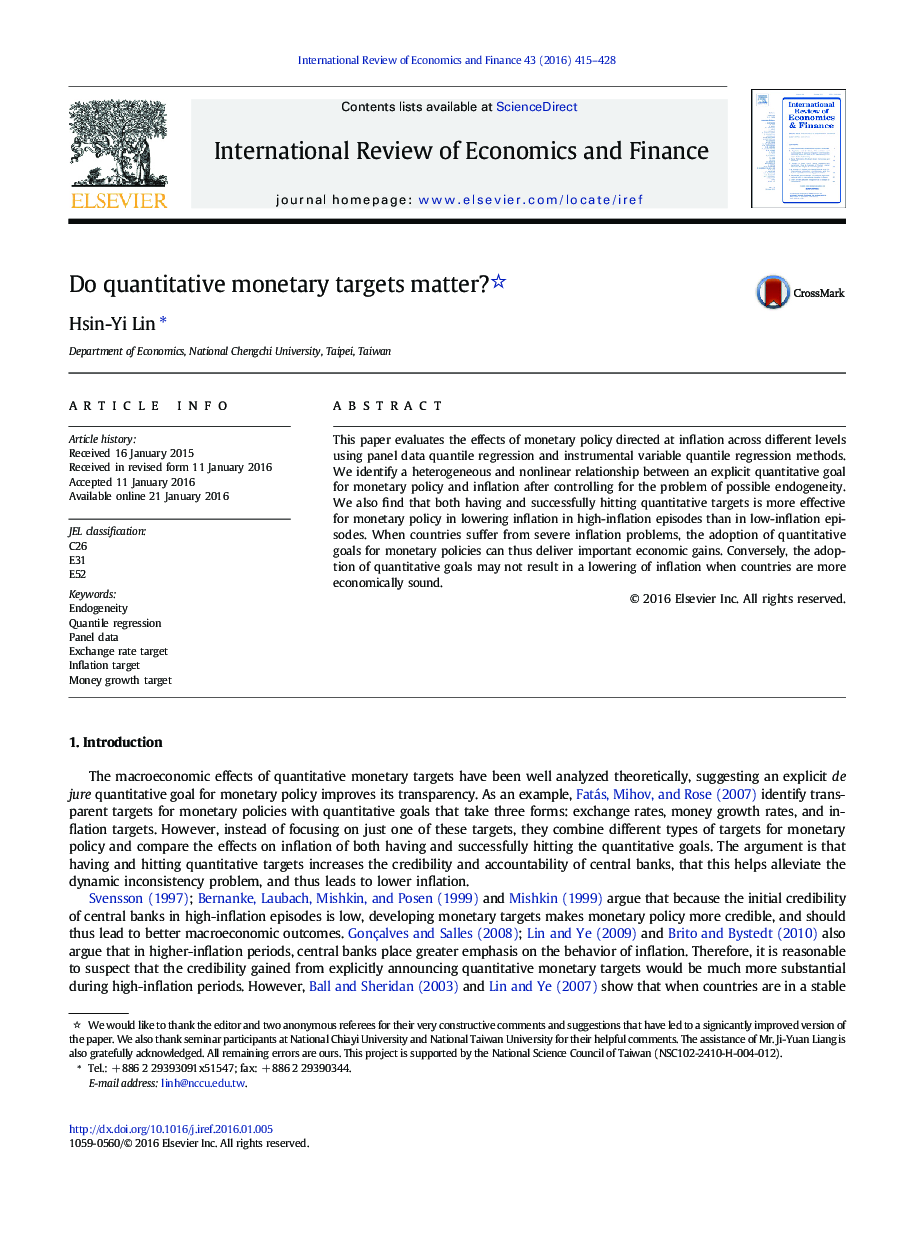| Article ID | Journal | Published Year | Pages | File Type |
|---|---|---|---|---|
| 5083359 | International Review of Economics & Finance | 2016 | 14 Pages |
â¢When countries suffer from severe inflation problems, the adoption of quantitative monetary targets can deliver important economic gains.â¢The adoption of quantitative goals may not result in a lowering of inflation when countries are more economically sound.
This paper evaluates the effects of monetary policy directed at inflation across different levels using panel data quantile regression and instrumental variable quantile regression methods. We identify a heterogeneous and nonlinear relationship between an explicit quantitative goal for monetary policy and inflation after controlling for the problem of possible endogeneity. We also find that both having and successfully hitting quantitative targets is more effective for monetary policy in lowering inflation in high-inflation episodes than in low-inflation episodes. When countries suffer from severe inflation problems, the adoption of quantitative goals for monetary policies can thus deliver important economic gains. Conversely, the adoption of quantitative goals may not result in a lowering of inflation when countries are more economically sound.
